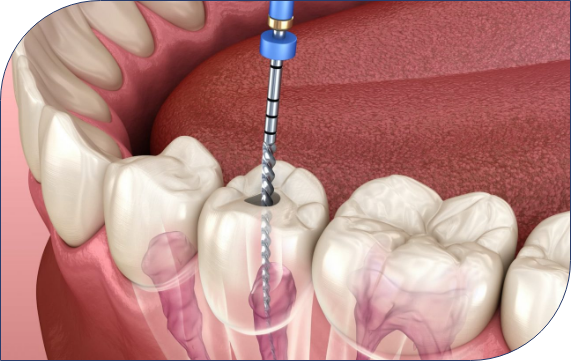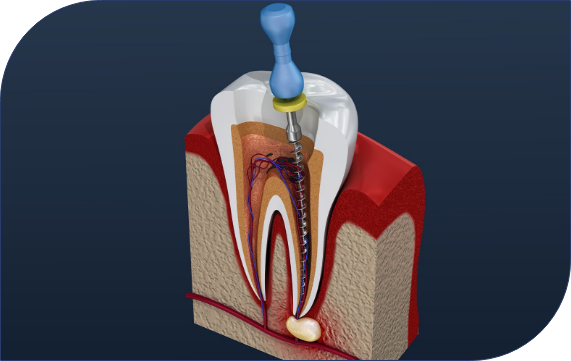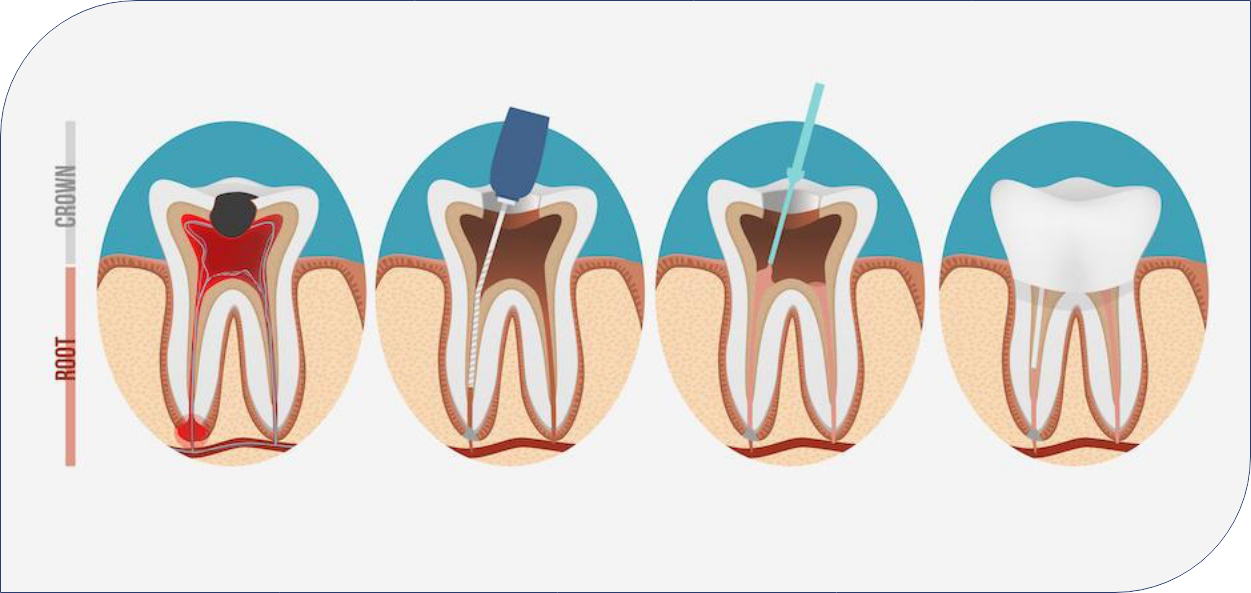
What is Root Canal Treatment?
Root Canal Treatment (RCT), often referred to as endodontic therapy, is a dental procedure aimed at saving a severely infected or damaged tooth, which might otherwise need extraction. Inside your tooth, there is a space known as the pulp chamber, which houses the tooth's nerve and blood vessels. When this pulp becomes infected due to decay or injury, it can cause severe pain and discomfort. RCT involves the removal of the infected or inflamed pulp, followed by cleaning, disinfection, and sealing of the tooth's interior to prevent further infection and save the tooth.
How is Root Canal Treatment Done?
Root Canal Treatment is a multi-step process carried out by a dentist or endodontist (a specialist in treating the dental pulp and nerve). Here's a step-by-step overview of the procedure

- Diagnosis: Your dentist will conduct a thorough examination and may take X-rays to determine the extent of the infection and the shape of the root canals.
- Anesthesia: To ensure your comfort during the procedure, the dentist will administer local anesthesia to numb the tooth and surrounding area.
- Isolation: A dental dam (a rubber sheet) is placed around the tooth to keep it dry and free from saliva.
- Access Opening: The dentist drills a small access hole in the tooth, providing access to the pulp chamber and root canals.
- Cleaning and Shaping: The infected or inflamed pulp is removed using specialized instruments. The interior of the tooth is cleaned and shaped to prepare it for filling.
- Irrigation and Disinfection: The root canals are thoroughly irrigated and disinfected to remove any remaining bacteria and debris.
- Filling: After cleaning and disinfection, the root canals are filled with a biocompatible material called gutta-percha. The access hole is sealed with a temporary or permanent filling.
- Restoration: In many cases, a crown is placed on the treated tooth to provide added strength and protection, especially for molars and premolars.
- Follow-up: Your dentist will schedule follow-up appointments to monitor the healing process and ensure the tooth is functioning properly.

FAQs
No, root canal treatment is not painful. Your dentist will use local anesthesia to ensure you don't feel pain during the procedure. Any discomfort following the procedure is typically manageable with over-the-counter pain relievers.
The duration of a root canal procedure depends on the complexity of the case. On average, it can take 1-2 hours. Multiple appointments may be needed for more complex cases.
Without treatment, the infection can spread, leading to more pain and potential complications. Eventually, tooth extraction may become the only option.
In most cases, it's safe to drive yourself home after a root canal treatment, as the effects of local anesthesia wear off relatively quickly.
A properly performed root canal is a permanent solution to save your tooth. However, the restored tooth can still be susceptible to decay or fractures, so good oral hygiene and regular dental check-ups are essential.
In many cases, a crown is recommended to protect and strengthen the treated tooth, especially for molars and premolars. Your dentist will advise you on the need for a crown.
The primary alternative to root canal treatment is tooth extraction, which should be considered as a last resort. Extraction may require further restorative treatments like dental implants or bridges to replace the missing tooth.
